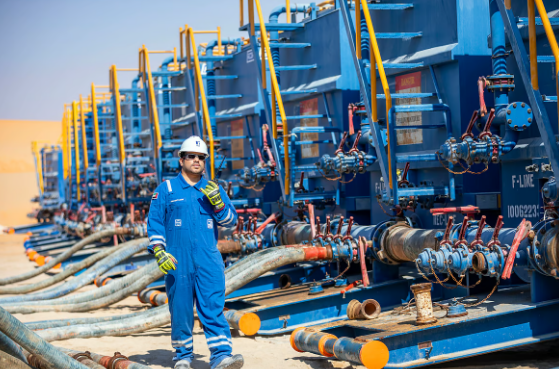As the global tariff war intensifies, the United Arab Emirates has adopted a cautious but optimistic stance, with top officials emphasizing adaptability and innovation in navigating the uncertain landscape. Speaking at the World Cargo Symposium held at the Dubai World Trade Centre, UAE officials and industry leaders said they are closely monitoring the situation but remain confident in their long-term growth trajectory.
“It is too early to speculate on the impact of the tariff war,” said Badr Abbas, Senior Vice President of Emirates SkyCargo. “However, we remain agile and resilient. We view disruption as an opportunity to innovate.” Abbas underscored that demand for the airline’s cargo services remains strong and operations continue at full capacity.
The symposium, which brings together global leaders in the cargo and logistics industry, comes at a time of heightened trade tensions, largely triggered by the U.S. imposing steep tariffs on various countries, particularly China. These measures have prompted retaliatory tariffs, causing market volatility, fears of a global economic slowdown, and a surge in gold prices.
Abbas stressed the need for long-term structural resilience in the industry. “The cargo and aviation industries have faced major disruptions over recent years. Whether geopolitical, economic, or environmental, we must build systems capable of withstanding future shocks,” he said.
The UAE’s strategic position continues to offer a competitive edge. “Dubai provides unparalleled access to dynamic economies,” Abbas said. “Within eight hours of flight, air cargo carriers can reach two-thirds of the world’s population.” He also pointed to Dubai’s liberal aviation policies, with over 100 airlines operating in and out of the emirate, making it a vital hub in global trade.
As part of Dubai’s broader ambitions, the Dubai Economic Agenda (D33) outlines plans for the city to rank among the top five global multimodal logistics hubs, with a strong emphasis on innovation, connectivity, and operational excellence.
UAE Minister of Economy Abdulla Bin Touq Al Marri echoed these sentiments in his keynote address. “The logistics sector is at a crossroads. E-commerce and demand for just-in-time delivery are rising, but we also face global challenges like geopolitical tensions and now the tariff conflict,” he said. “The numbers reflect both opportunity and responsibility.”
Clive Sauvé-Hopkins, CEO of dnata Airport Operations, said the ground handling company is already seeing trade flow shifts due to tariff policies. “We adapt as markets change. With operations at 99 airports globally, we’re ready to reposition as needed,” he noted.
Dnata also announced a record-breaking milestone on Tuesday — handling over 1 million tonnes of cargo in Dubai between April 2024 and March 2025, a 30% year-on-year increase driven by strong demand across multiple cargo categories.
Meanwhile, Willie Walsh, Director-General of the International Air Transport Association (IATA), urged caution in overanalyzing the impact of tariffs. “It’s far too early to predict,” he said. “But I remain confident our industry will weather this storm.”



